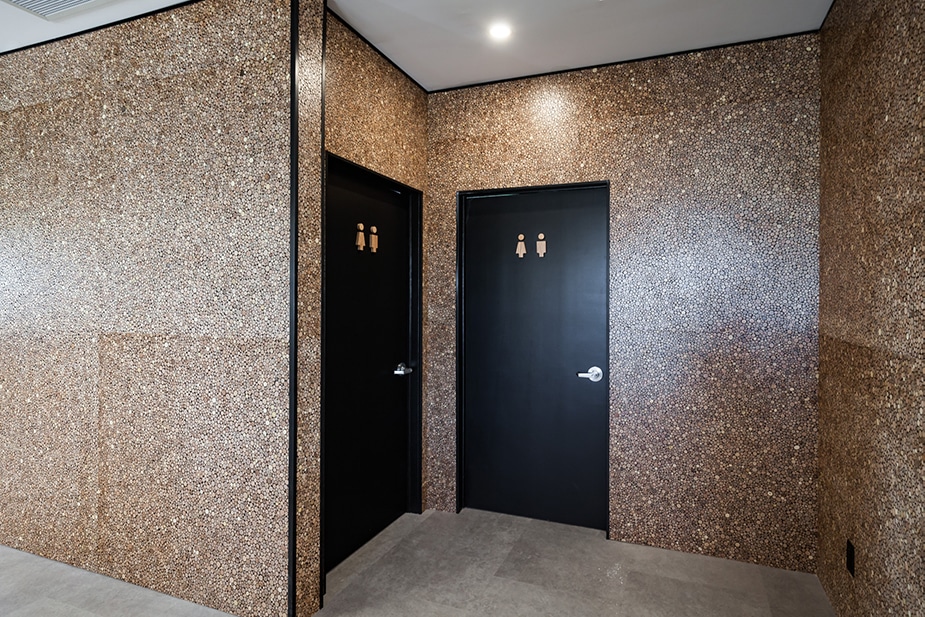Selecting sustainable materials for office furniture is crucial for promoting environmental responsibility and enhancing workplace health. By prioritizing eco-friendly options, businesses can reduce their carbon footprint and foster a culture of sustainability.
Environmental Benefits of Sustainable Materials
Sustainable materials help reduce environmental impact.
Choosing sustainable materials significantly lowers the ecological footprint of office furniture. These materials are often sourced from renewable resources, which helps mitigate deforestation and encourages responsible manufacturing practices. Additionally, they often use less energy in their production processes, contributing to lower greenhouse gas emissions. By opting for sustainable options, companies can play a vital role in protecting biodiversity and conserving natural resources. Implementing such choices also aligns with global sustainability initiatives, showcasing corporate commitment to environmental stewardship.
Health and Well-being of Employees
Sustainable materials promote a healthier work environment.
Utilizing sustainable materials in office furniture can improve indoor air quality and reduce exposure to harmful chemicals. Many conventional materials are treated with toxic substances that can off-gas and lead to numerous health issues for employees. In contrast, eco-friendly materials are often non-toxic and hypoallergenic, fostering a safer workspace. Furthermore, an increase in biophilic design elements, such as natural wood and plants, can enhance employee mood and productivity. As a result, choosing sustainable furniture goes beyond aesthetics; it directly contributes to employee wellness.
Cost Efficiency in the Long Run
Investing in sustainable materials can lead to cost savings.
While the initial investment in sustainable office furniture may be higher, these materials often lead to significant cost savings over time. Their durability means they require less frequent replacement, reducing long-term expenditures. Additionally, many sustainable options come with higher energy efficiency ratings, contributing to decreased utility costs. Efficient manufacturing practices also often involve less waste and better resource management, which can translate to further financial benefits for the company. Ultimately, a sustainable approach fosters a smarter allocation of financial resources.
Corporate Social Responsibility (CSR)
Sustainable materials enhance corporate image and CSR.
Incorporating sustainable materials into office furniture is a tangible demonstration of a companys commitment to corporate social responsibility. This act not only resonates with environmentally conscious consumers but also attracts investors and partners who value sustainability. By making responsible choices, companies contribute to a positive public perception and can differentiate themselves in a competitive market. Moreover, employees often feel more engaged and aligned with a company that prioritizes sustainability, boosting morale and loyalty. Ultimately, CSR initiatives tied to sustainable practices create a win-win situation for both the business and society.
Incentives and Regulations
Government incentives encourage the use of sustainable materials.
Many governments offer incentives for businesses that choose sustainable materials for their operations, including tax breaks and grants. These incentives aim to encourage companies to shift toward more environmentally friendly practices and reduce barriers to entry for sustainable products. In addition to financial benefits, adhering to growing regulations around sustainability can position companies favorably in their industries. As regulations become stricter, businesses that proactively adopt sustainable practices will likely face fewer compliance issues in the future. Consequently, choosing sustainable office furniture becomes not just a responsible decision, but a strategic one as well.
Aesthetic Appeal and Design Flexibility
Sustainable materials can enhance the aesthetic value of an office.
Modern sustainable materials offer a variety of aesthetic options, allowing businesses to create attractive and functional workspaces. From reclaimed wood to bamboo and recycled metals, these materials add a unique character to office interiors while promoting sustainability. Designers can utilize these materials to create innovative, inspiring environments that reflect the company’s values. This focus on aesthetics while using sustainable options can be a great way to attract talent and impress clients. Moreover, as preferences shift towards minimalism and green design, incorporating sustainable furniture can position a brand as forward-thinking and contemporary.
Future-Proofing the Workspace
Sustainable materials prepare businesses for future challenges.
Choosing sustainable office furniture equips businesses to face future challenges related to environmental change and resource availability. As awareness of environmental issues grows, the demand for sustainable practices will continue to rise. By embracing sustainable materials, companies not only contribute to a healthier planet but also ensure their long-term viability in a shifting market. This proactive approach to sustainability can create competitive advantages, as consumers increasingly prefer brands that support eco-friendly initiatives. Ultimately, investing in sustainable materials is an investment in a resilient future.
In conclusion, selecting sustainable materials for office furniture is not just an ethical choice; it brings a multitude of benefits encompassing environmental impact, employee well-being, cost savings, and corporate image. As businesses strive for sustainability, making informed choices about office furniture can lead to a more responsible, productive, and appealing workspace.

